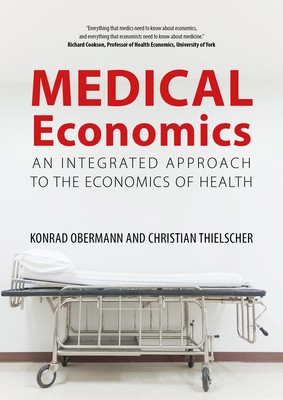
- We will send in 10–14 business days.
- Author: Konrad Obermann
- Publisher: Agenda Publishing
- ISBN-10: 1788211898
- ISBN-13: 9781788211895
- Format: 16.8 x 24.1 x 2.8 cm, kieti viršeliai
- Language: English
- SAVE -10% with code: EXTRA
Reviews
Description
Health economics has become an established field of enquiry over the past 30 years and is now an important contributor to normative health policy, and decisions concerning the allocation of resources and the quality of health care provision. However, the economic theory that underpins health economics is largely built on the neoclassical school of economic thought at the expense of other heterodox approaches to economics. This book addresses this imbalance of influence and draws on a wider breadth of economic thinking in order to improve health care for everyone.
Written by two medics, who are also qualified economists, the book aims to introduce students to complex economic principles and analytical frameworks through a mixture of hypothetical thought experiments and real-world examples. The text is divided into six parts, each aimed at expanding the reader's cognizance of core issues in health economics: health and economic thinking; health insurance; health economic evaluation; justice and health priority setting; health management; and macroeconomics and health. Addressing concerns that are relevant to both the individual and to public health, this text offers broad, complementary discussions to the paradigms conventionally deployed in health economics and will be welcomed by both economists and medical practitioners alike.EXTRA 10 % discount with code: EXTRA
The promotion ends in 23d.18:40:25
The discount code is valid when purchasing from 10 €. Discounts do not stack.
- Author: Konrad Obermann
- Publisher: Agenda Publishing
- ISBN-10: 1788211898
- ISBN-13: 9781788211895
- Format: 16.8 x 24.1 x 2.8 cm, kieti viršeliai
- Language: English English
Health economics has become an established field of enquiry over the past 30 years and is now an important contributor to normative health policy, and decisions concerning the allocation of resources and the quality of health care provision. However, the economic theory that underpins health economics is largely built on the neoclassical school of economic thought at the expense of other heterodox approaches to economics. This book addresses this imbalance of influence and draws on a wider breadth of economic thinking in order to improve health care for everyone.
Written by two medics, who are also qualified economists, the book aims to introduce students to complex economic principles and analytical frameworks through a mixture of hypothetical thought experiments and real-world examples. The text is divided into six parts, each aimed at expanding the reader's cognizance of core issues in health economics: health and economic thinking; health insurance; health economic evaluation; justice and health priority setting; health management; and macroeconomics and health. Addressing concerns that are relevant to both the individual and to public health, this text offers broad, complementary discussions to the paradigms conventionally deployed in health economics and will be welcomed by both economists and medical practitioners alike.

Reviews